Produced by Gao Xingzi; Written by Chen Chen; Camera by Zhang Wanbao
Equestrianism is the art of horseback riding. But what does that mean? You might have seen photos of horses jumping fences, or of the animals dancing in steps with the rider, but have you ever wondered what the sport is really about, and if it even qualifies as a sport?
We talked to China’s first and only Olympic event rider, Alex Hua Tian, at the Equuleus Riding Club in Beijing. He shared with us how establishing a partnership with the horse is what matters the most in the equestrian world, and discussed his hopes and concerns towards China’s equestrian industry.
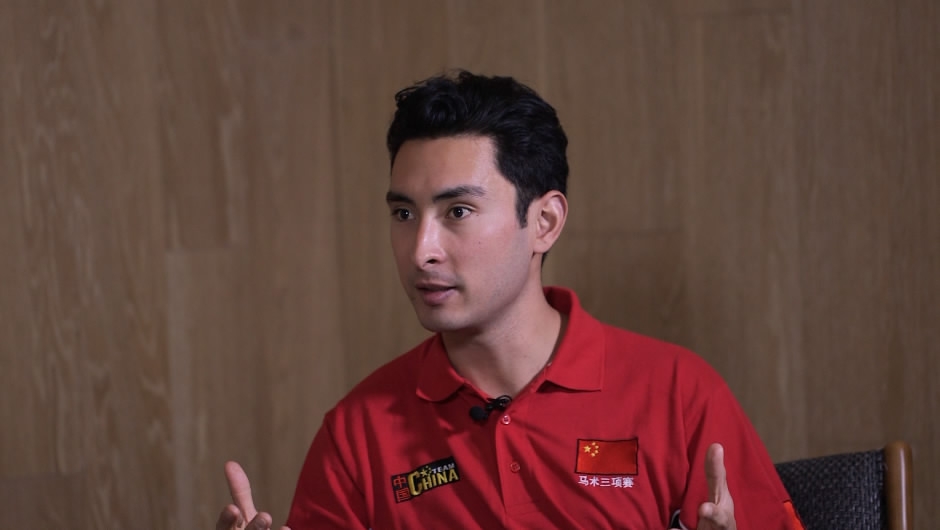
CGTN Photo
Walking towards us, he carried a suitcase with a large Chinese flag sticker on it. The 190cm-tall equestrian rider was dressed casually in a black shirt, embracing us with a warm smile. Walking towards our lunch table, he showed he was as at ease taking interviews as he was on horseback, telling us “I’m all yours today.” Hua was very cooperative and gave CGTN his whole afternoon, agreeing to all our question and filming requests.
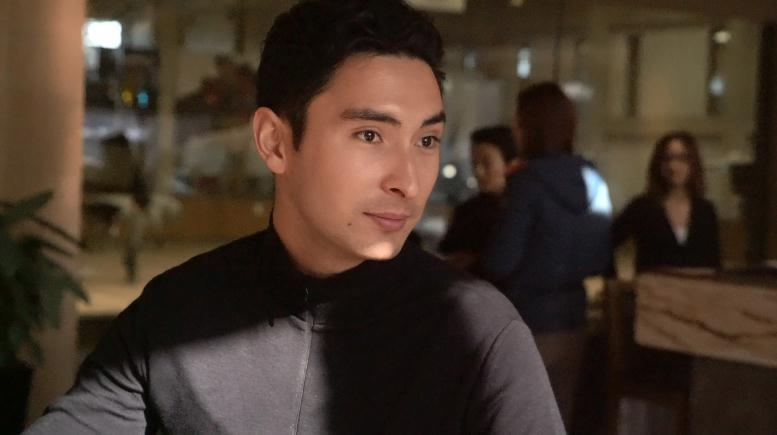
CGTN Photo
Equestrian sport is the only sport where men and women, as well as male and female horses compete equally. It is also the only Olympic sport where humans and animals work together as a team.
Teamwork is the keyword in the sport, and it is during competitions that the partnership is put to test, as the rider’s communication with the animal is showcased and closely scrutinized.
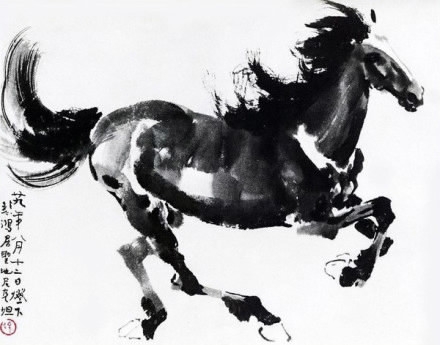
Internet Photo, painting of Xu Beihong
“If you are riding a horse, you are nervous or tense, the horse feels that. It amplifies it.
If you are relaxed and you are confident, the horse feels it, and amplifies it,” Hua said.
I myself am an equestrian enthusiast. Based on my several years of riding experience, which began in college, that communication with the horse is intense. The way an animal can read you and reflect you is a truly amazing and unique experience.
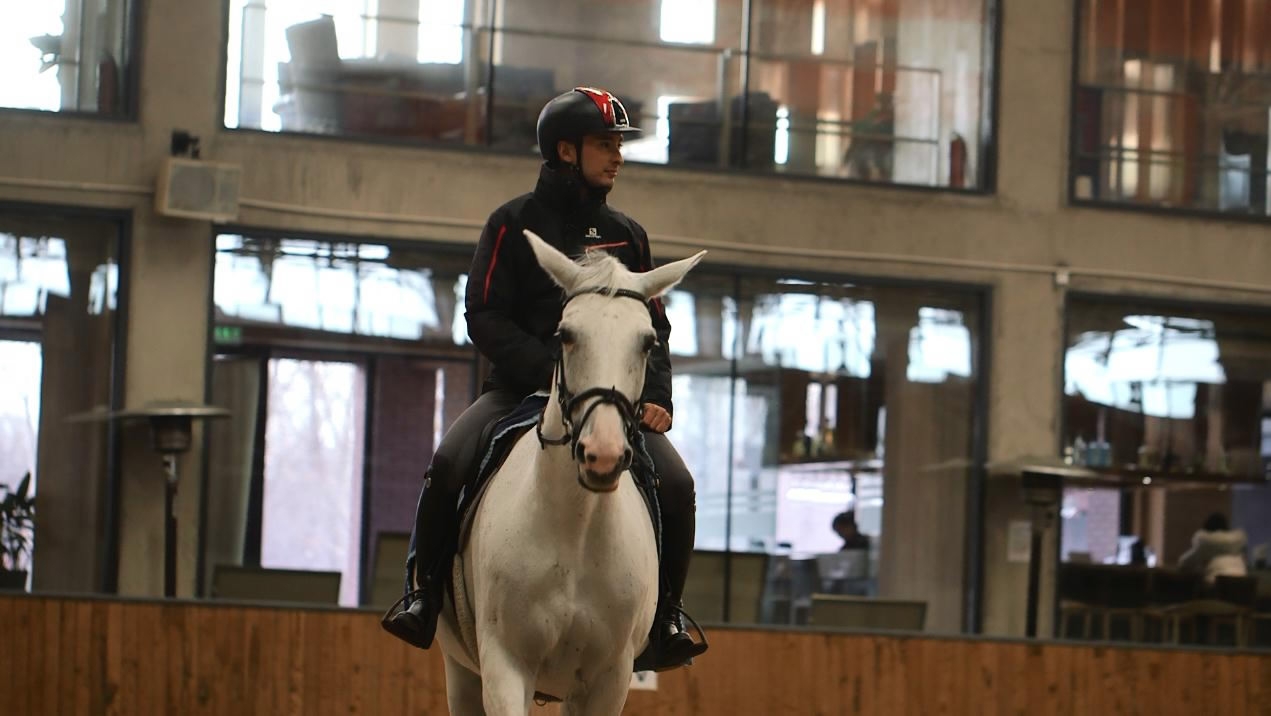
CGTN Photo
Hua told me, “They read you, and bounce back exactly your feelings at that time. If you are nervous, the horses are nervous. How can you perform?”
The hashtag #TwoHearts, now commonly used in riding circles, means, according to Hua, that it “is the horse’s heart and the rider’s heart working together. It is the core of the sport.”
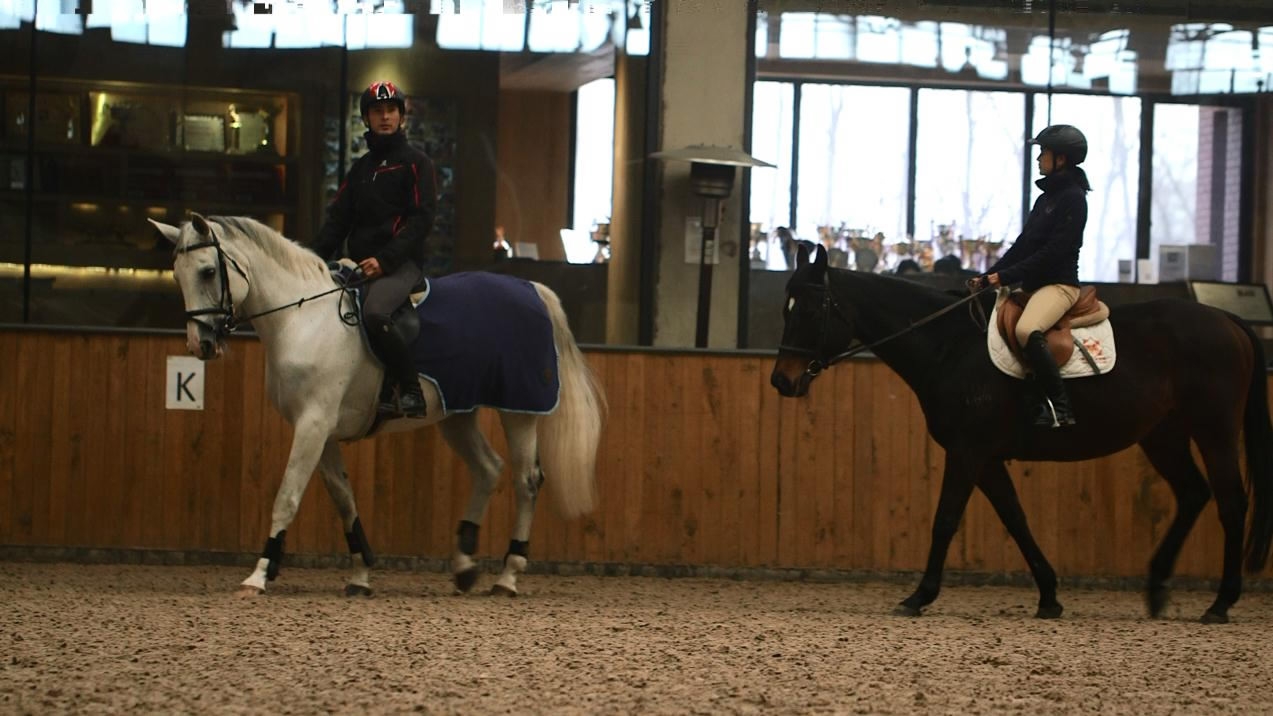
CGTN Photo
Horsemanship is the connection between horse and rider. Emotions such as compassion, determination, responsibility, duty of care, leadership, and teamwork are all core to how Hua understands what horsemanship truly means.
“As a rider, we want to win, but not at the expense of our horse,” Hua said.
I have watched the Longines FEI World Cup Jumping China tour multiple times, and on many occasions I have seen competing riders giving up their chances in the tournament, simply because their horses were not doing well. This shows just how the riders do not want success at the cost of their partners. As Hua said, “the partnership is on a sports level, it’s also on an emotional level.”
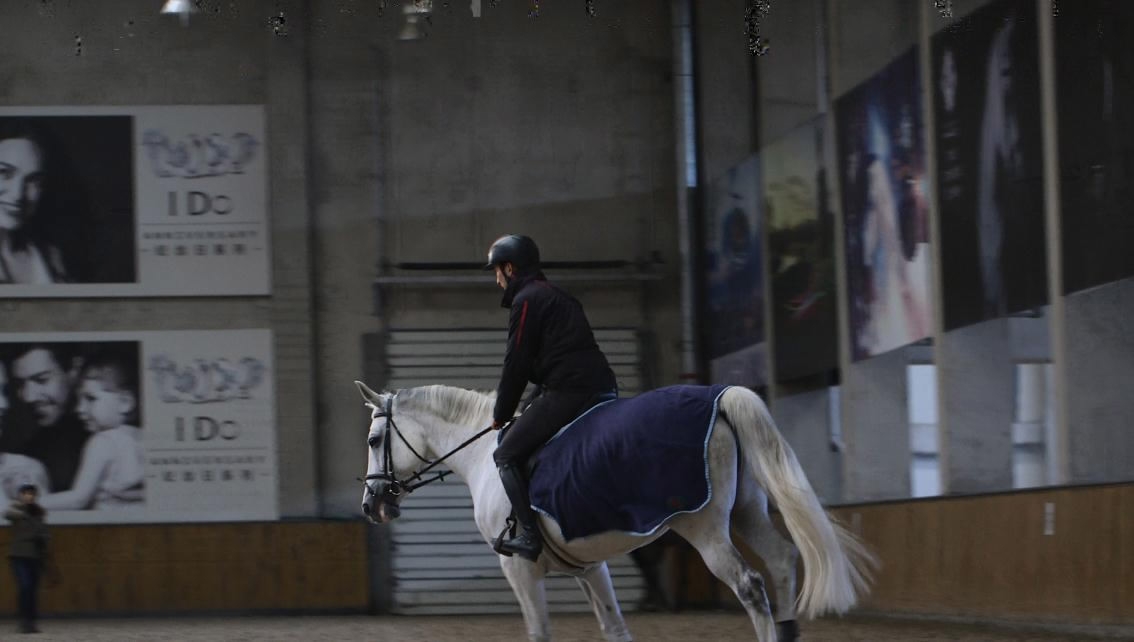
CGTN Photo
Exactly where does this partnership between horse and rider take you? According to Hua, it’s trust. He recounted how he once realized he wasn’t able to jump over a fence because of his own mistakes, so he let his reins loose, and let his horse Mulan make the decision to jump or not. As a result, Mulan successfully took care of Hua’s mistake, and carried him over the fence, except just not that comfortably.
The values that come under the concept of horsemanship are widely relatable, and are values which everyone should aspire to, especially in the Chinese community, says Hua. “That’s what I’d like the equestrian sport and equestrianism to stand up for.”
Healthy growth important for China to build equestrian foundations
China is speeding up its involvement in equestrianism, with more and more riding clubs being established in the country. More high quality horses are being imported into China, and more local competitions and events are being held every year.
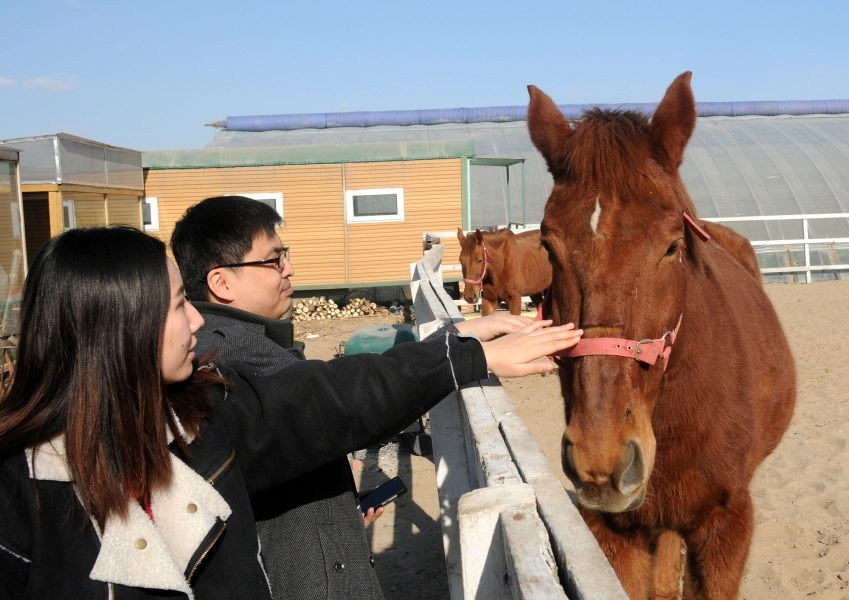
CFP Photo
According to statistics from the Beijing Equestrian Association, there are now more than 500 equestrian clubs in China. In Beijing alone, 10 new equestrian clubs are being established every year.
But for Hua, there are concerns over the development of the industry. In China, the good clubs are quite expensive and beautifully run and the horses are happy. However, Hua says “I worry deeper into the industry, businesses and individuals who don't understand the core of this sport.”
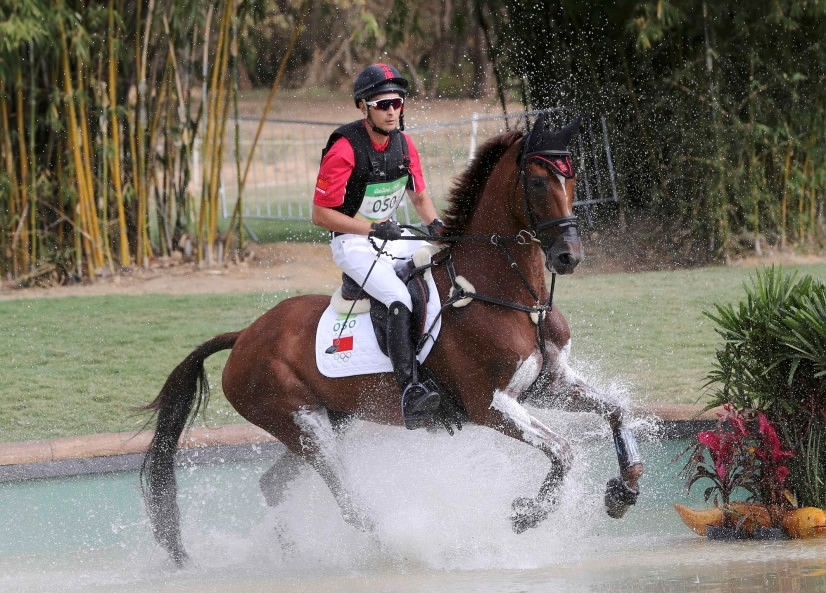
CFP Photo
Hua thinks that China still has relatively little foundations to support this sport.
“In the UK, the horse industry is bigger than the music industry. There are regulations, standard industry practices, and safety practices.”
“The healthy growth of equestrianism is very important.”
“The sport is elite and untouchable for normal Chinese communities, and that is very sad.” Hua hopes to promote healthy growth in the sport, and wants to make sure people have access to horses no matter their background.
One should be confident to make mistakes
The number eight, while lucky for most in China, is a love and hate figure for Hua. Competing as the youngest event rider at the Beijing 2008 Olympics, Hua was only 18, and in his words, in a fairy tale. But he did not expect to fall at the eighth fence. After missing the London 2012 Olympics, Hua competed at the Rio 2016 games eight years after his Olympic debut, and finished in eighth place.
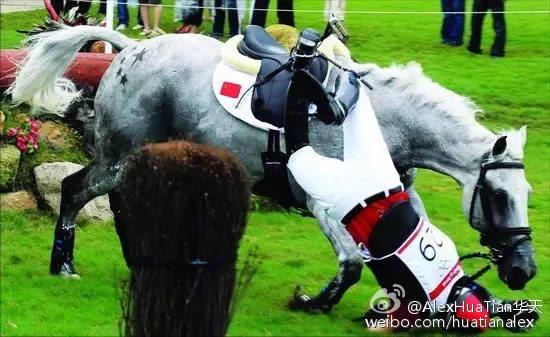
Weibo photo of Alex Hua Tian
Describing the fall at the Olympics, he said he was “devastated and devastatingly disappointed.”
Initially, he was just disappointed at himself, but after his initial anger at himself subsided, “I recognized this profound disappointment for my team members. My trainers, my vets and others who had invested blood, sweat and tears, which was a very tough thing to get over.”
But eight years down the road, he has gradually recognized and gradually grown to thank that moment, because what it did was to give him experience and a taste of life as a professional rider, telling him that this was what he wanted to do. That fall gave him the drive to strive on for the last eight years.
“I have made many mistakes, but you’ve got to have the confidence to make many mistakes. Everybody makes mistakes, it’s not a problem. It’s how you deal with these mistakes, how to learn from these mistakes. How you remodel what you are doing around these mistakes.”
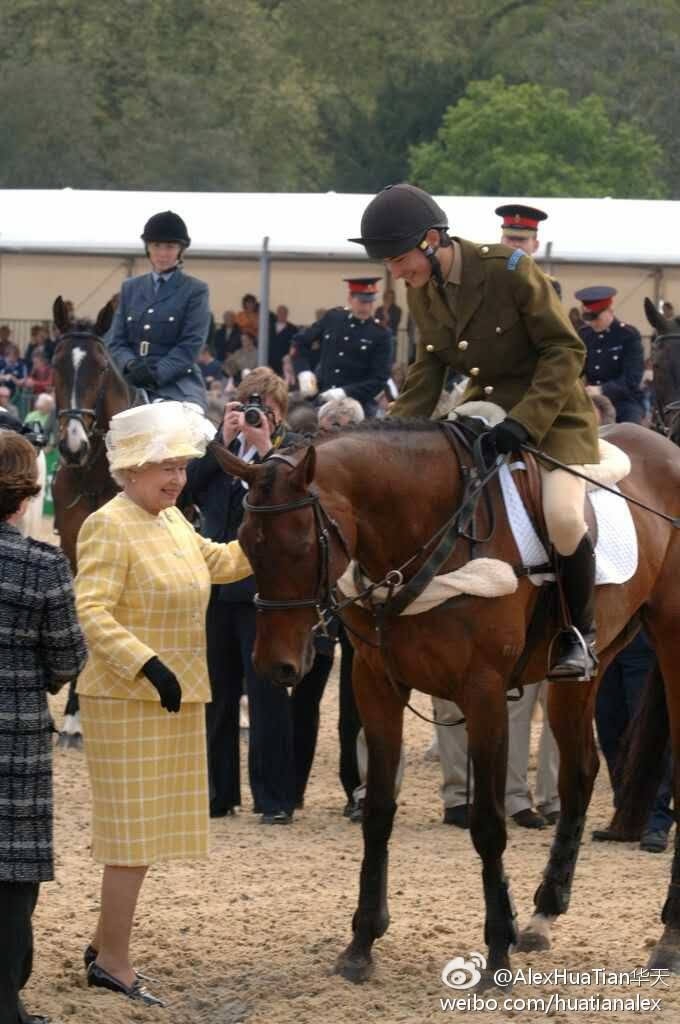
Weibo Photo of Alex Hua Tian
“A lot of people, they are not successful because they are too worried about taking risks. Risks, mistakes, these are all part of life, they are even more part of success.”
Talking about his dream, he said he is in no rush for success, but is taking his career as a rider step-by-step and building on what he has achieved, preferring to take a long approach.
“Although in China I'm at the top of the sport at this moment, and the only rider competing at Olympic level, but I think what the Chinese public sometimes forget, that on an international scale, I'm right at the beginning of my career.” He said there remains a huge amount that he wants to do and achieve.
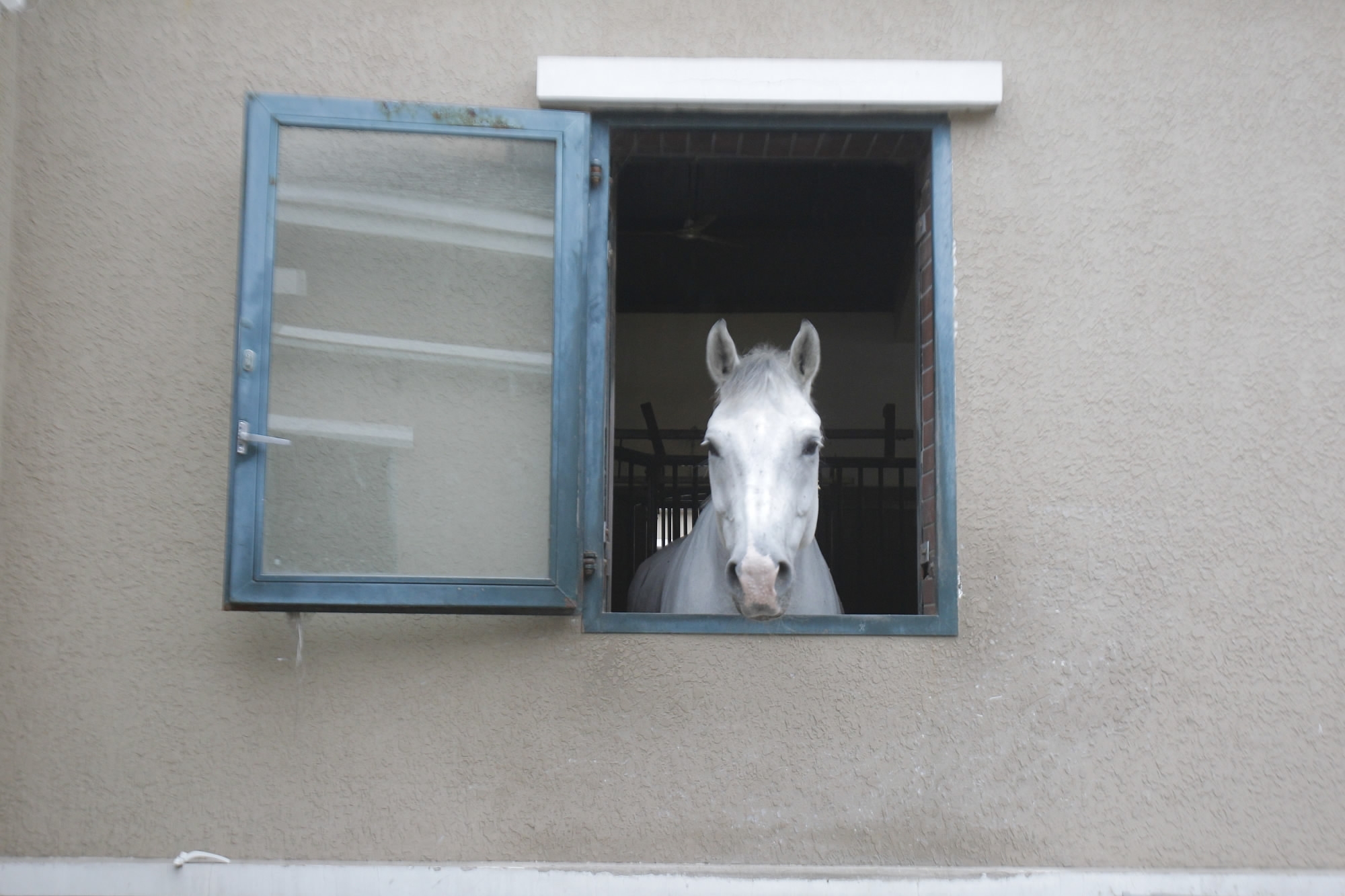
CFP Photo
“I want to build something that is meaningful that is going to take me down the road in the next 20 years, rather than only winning next year.”
18km
Kevin Macleod’s song “Ambiment - The Ambient” used in accordance with permission granted: https://creativecommons.org/licenses/by/4.0/
Source: http://incompetech.com/music/royalty-free/index.html?isrc=USUAN1100630
Artist: http://incompetech.com/
Audionautix’s song “Acoustic Guitar 1” used in accordance with permission granted: https://creativecommons.org/licenses/by/4.0/
Artist: http://audionautix.com/










